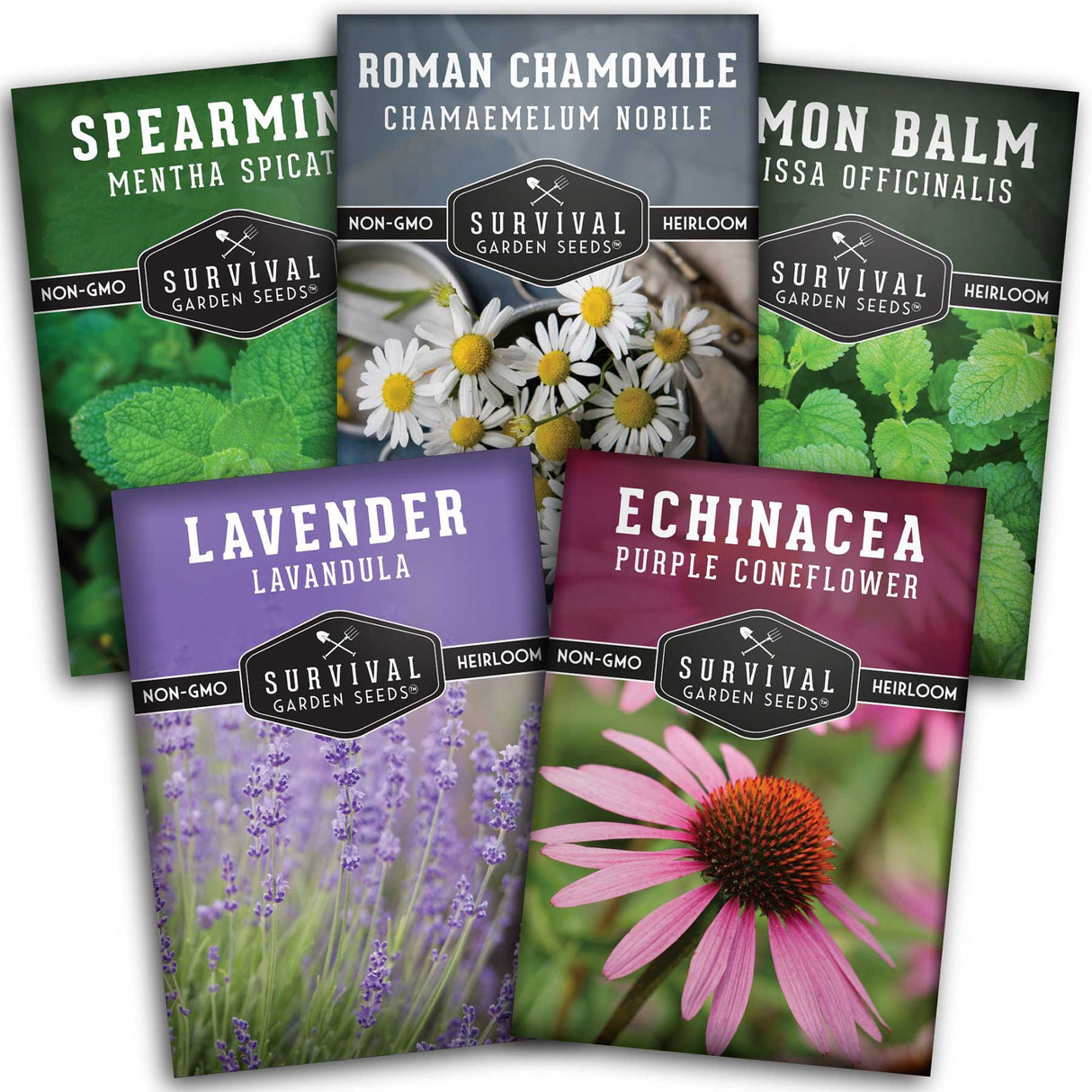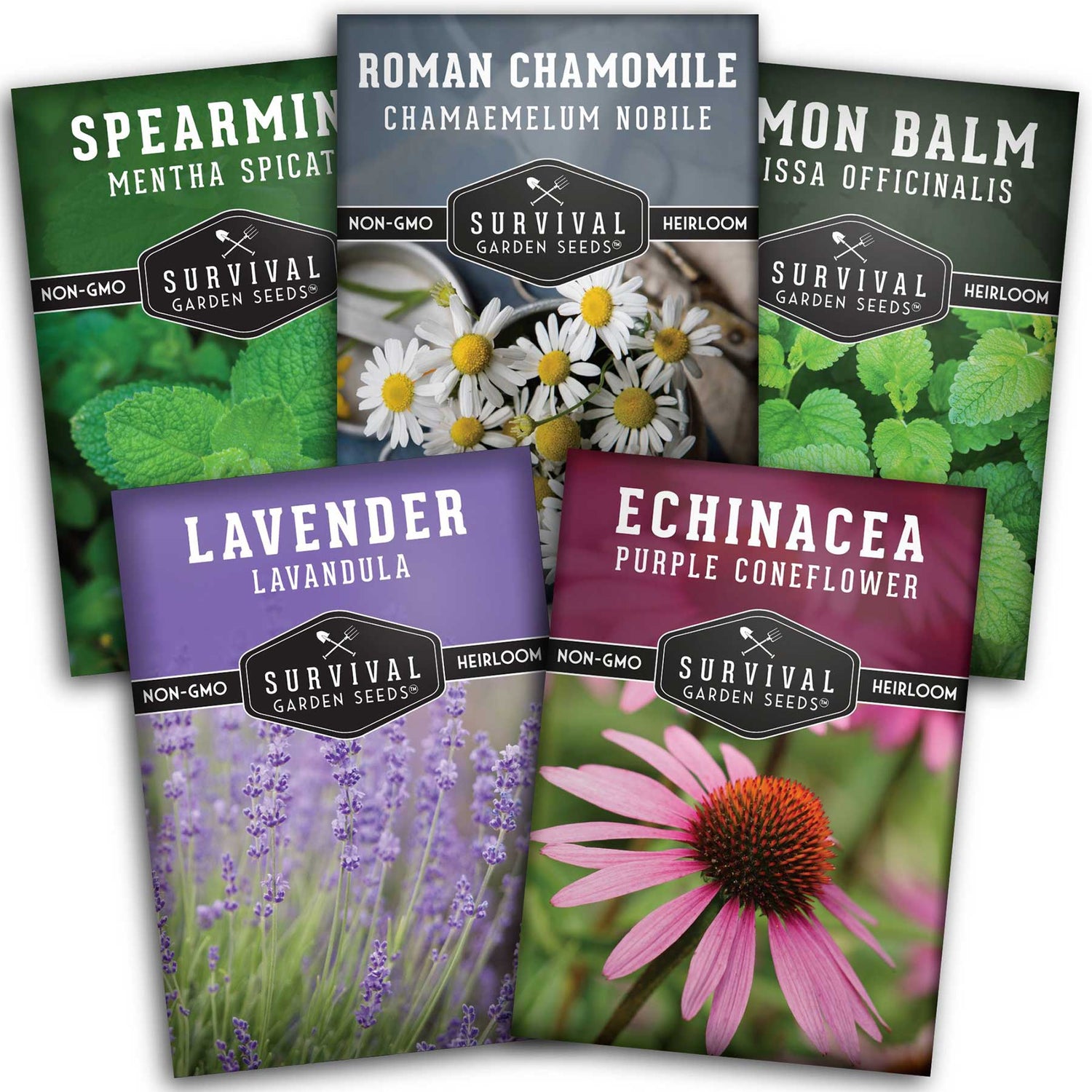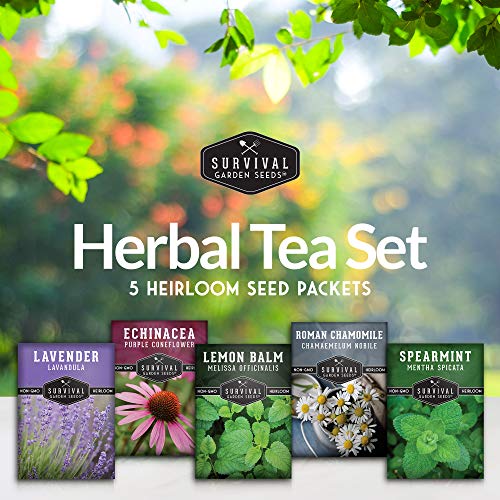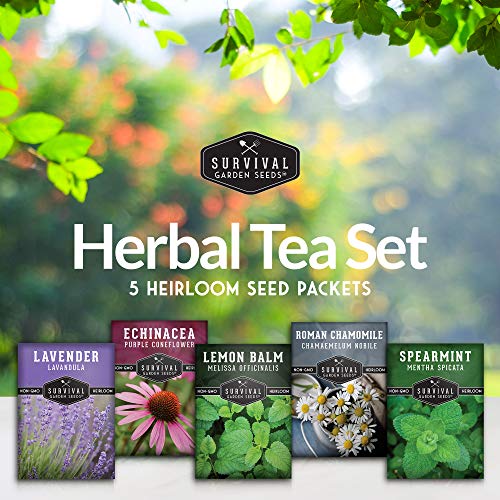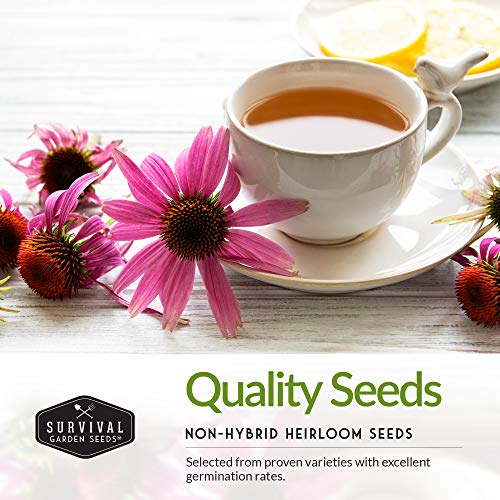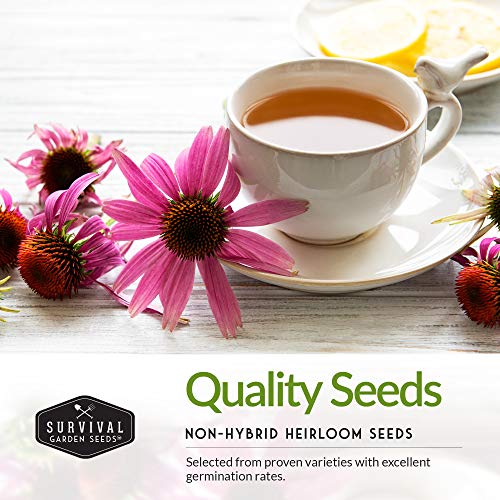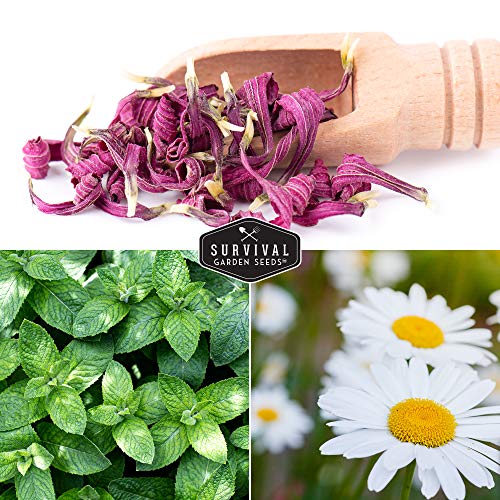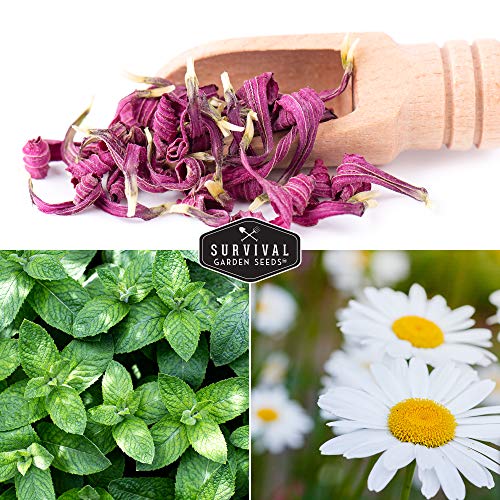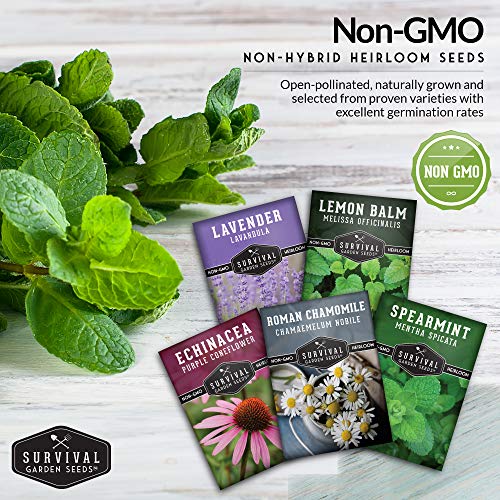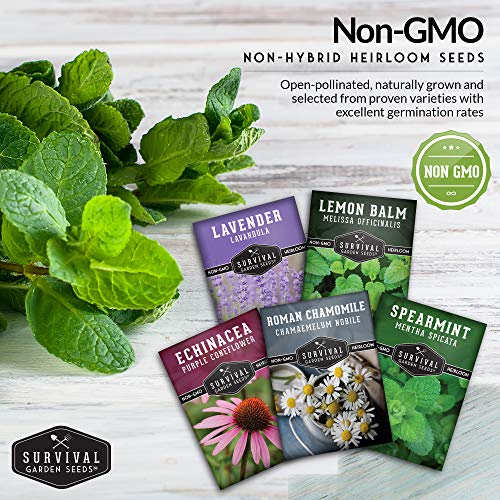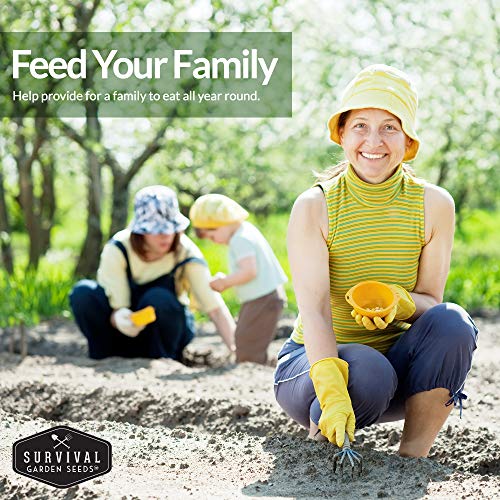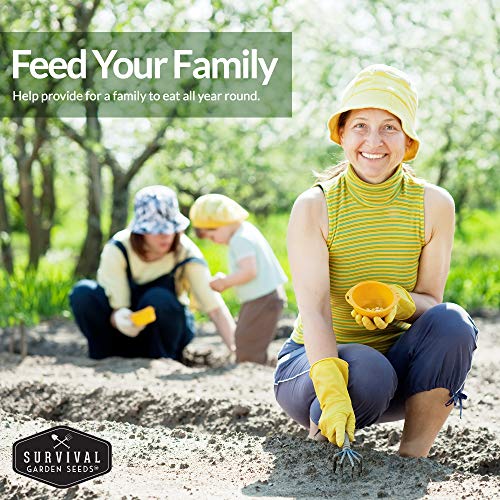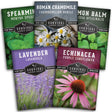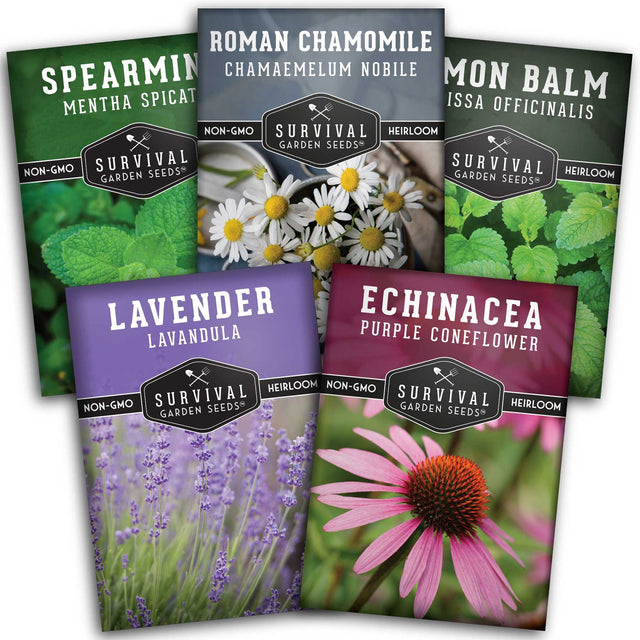Herbal Tea Garden Seeds Kit – 5 Heirloom Medicinal Herbs for Soothing Teas, Remedies & Pollinator-Friendly Gardens
Heirloom - Non-GMO - Reliable Germination
Herbal Tea Garden Seeds Kit – 5 Heirloom Medicinal Herbs for Soothing Teas, Remedies & Pollinator-Friendly Gardens is backordered and will ship as soon as it is back in stock.
Couldn't load pickup availability
Create a fragrant and functional garden with the Herbal Tea Garden Seeds Kit from Survival Garden Seeds. This curated 5-herb collection includes Lavender, Chamomile Roman, Lemon Balm, Spearmint, and Echinacea Purple Coneflower—beloved heirloom, non-GMO herbs valued for their calming teas, soothing infusions, and natural wellness benefits.
Grow Herbal Teas and Natural Remedies:
Enjoy fresh, homegrown ingredients for tea, tinctures, and infusions.
- Chamomile and Lavender promote calm and relaxation.
- Lemon Balm and Spearmint add bright, refreshing flavor.
- Echinacea is a time-honored herb for immune support and seasonal wellness.
- Homegrown herbs offer pure, fresh aromas and peace of mind in every cup you brew.
Companion Plants with Extra Benefits:
These medicinal herbs do more than flavor your teas—they support your garden ecosystem.
- Attract beneficial pollinators like bees and butterflies.
- Deter common garden pests naturally.
- Enhance your vegetable garden’s productivity and visual appeal.
Easy to Grow Indoors or Outdoors:
Designed for beginner and experienced gardeners alike, these herbs thrive in containers, raised beds, or traditional plots.
- Perennial herbs like lavender and echinacea return each year.
- Fast-growing annuals such as chamomile, lemon balm, and spearmint provide quick harvests.
- Most varieties love full sun and become drought-tolerant once established—perfect for a wide range of USDA zones.
Why Customers Love the Herbal Tea Garden Seeds Kit:
- Includes five trusted medicinal herbs for teas and remedies.
- Pollinator-friendly plants that enhance any garden.
- Easy to grow indoors or outdoors in most climates.
- Fresh, natural ingredients for homemade wellness.
- Backed by a family-owned, USA-based seed company.
How to Grow:
- Start seeds indoors or sow directly outdoors after the last frost.
- Provide full sun and well-drained soil.
- Keep soil lightly moist until seedlings are established.
- Harvest leaves and flowers regularly to encourage continued growth.
- Dry herbs for long-term storage or use fresh in teas and infusions.
Heirloom Garden Seeds
All of our seeds are open-pollinated, non-GMO, heirloom varieties with tested germination rates
Payment & Security
Payment methods
Your payment information is processed securely. We do not store credit card details nor have access to your credit card information.
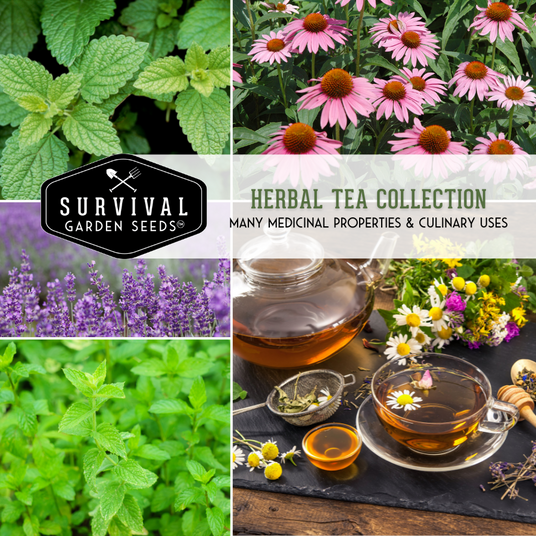
Grow Your Own Herbal Teas
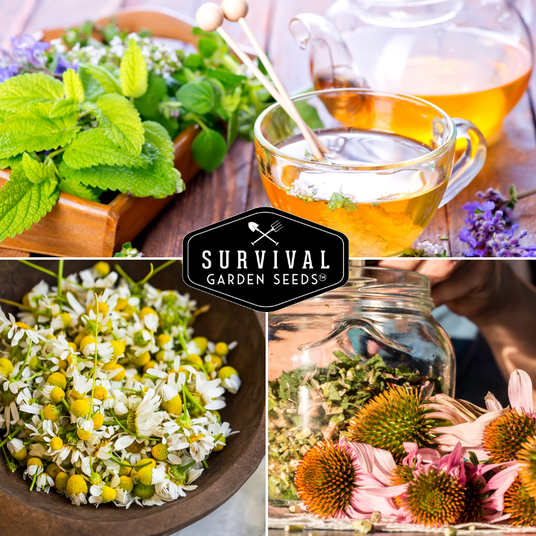
Herbs Have Other Benefits
Why Choose Survival Garden Seeds
At Survival Garden Seeds, we believe in preparing today for tomorrow’s peace of mind. That’s why we offer only heirloom, non-GMO, and untreated seeds you can trust to nourish your family and support a sustainable lifestyle. As a family-owned American company, we’re committed to providing seeds that grow strong and true—helping you cultivate health, resilience, and beauty in your garden.
Frequently Asked Questions
Are your seeds heirloom and open-pollinated?
Are your seeds heirloom and open-pollinated?
Yes. All of our seeds are heirloom, open-pollinated varieties, which means they can produce seeds that grow true to type and are suitable for seed saving.
You can learn more about open-pollinated, heirloom, and non-GMO seeds in our Survival Garden Training blog.
Are your seeds non-GMO?
Are your seeds non-GMO?
Yes. All Survival Garden Seeds are 100% non-GMO. Our seeds are open-pollinated heirloom varieties and are never genetically modified.
Are your seeds treated with chemicals?
Are your seeds treated with chemicals?
No. Our seeds are completely untreated and free from chemical coatings, fungicides, or synthetic treatments.
How do I know my seeds are fresh?
How do I know my seeds are fresh?
Every seed packet includes a packed-for date, and we germination-test each seed lot before packaging to ensure high viability.
What is the shelf life of your seeds?
What is the shelf life of your seeds?
Most seeds remain viable for 3 to 5 years or longer when stored properly in a cool, dry place away from light and moisture.
In what USDA hardiness zones can I grow your seeds?
In what USDA hardiness zones can I grow your seeds?
Our varieties are selected to grow successfully across USDA Hardiness Zones 3 through 10. Each packet includes variety-specific planting guidance and germination tips.

